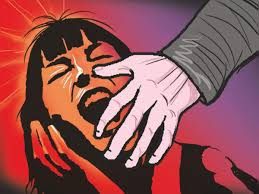opinion piece
Title: The Grim Reality of Rape Cases in India: A Call for Urgent Change
Rape cases in India have remained a troubling and deeply disturbing issue for far too long. Despite the country's progress in various aspects, the prevalence of sexual violence continues to cast a dark shadow over its society. It is a problem that demands immediate attention and concerted efforts to address.
One of the most disheartening aspects of this issue is the underreporting of cases. Due to the stigma associated with rape and the fear of societal judgment, many victims choose to suffer in silence. The fear of retaliation or further harm often discourages them from seeking justice. This underreporting perpetuates a cycle of impunity, where perpetrators go unpunished, emboldening them to commit further crimes.
Even when survivors do muster the courage to report the crime, the criminal justice system in India is fraught with inefficiencies and delays. Cases can languish in the legal system for years, causing additional trauma to the survivors. This slow pace of justice not only deters victims from coming forward but also erodes public trust in the legal system's ability to deliver justice.
It is also crucial to acknowledge the role of deeply ingrained patriarchal attitudes in perpetuating rape culture in India. The societal norms that blame victims for their clothing or behavior must be dismantled. A comprehensive effort is needed to educate society, particularly men and boys, about consent, respect, and gender equality.
The need for a stronger legal framework and more stringent punishment for perpetrators is evident. Legislative reforms have been introduced in recent years, including the death penalty for particularly heinous cases. However, the effectiveness of these measures remains a subject of debate, and there is a need for a balanced and well-informed approach to criminal justice reform.
Additionally, law enforcement agencies must be better equipped and trained to handle rape cases sensitively and efficiently. Specialized support systems, including counseling services for survivors, should be readily available. Furthermore, initiatives to enhance public awareness and education about sexual violence and its consequences are vital.
Civil society, media, and the government must work together to shift the narrative surrounding rape cases in India. We must not only focus on the statistics but also the lives shattered by this epidemic. Each case represents a human being who deserves justice, support, and healing.
In conclusion, the issue of rape cases in India is a deeply troubling and complex problem. It requires a multifaceted approach that addresses cultural, societal, and systemic issues. It's time for India to come together to create a safer and more compassionate society, where survivors can find the support and justice they deserve, and where potential perpetrators are deterred by the certainty of swift and severe consequences.



Comments
Post a Comment